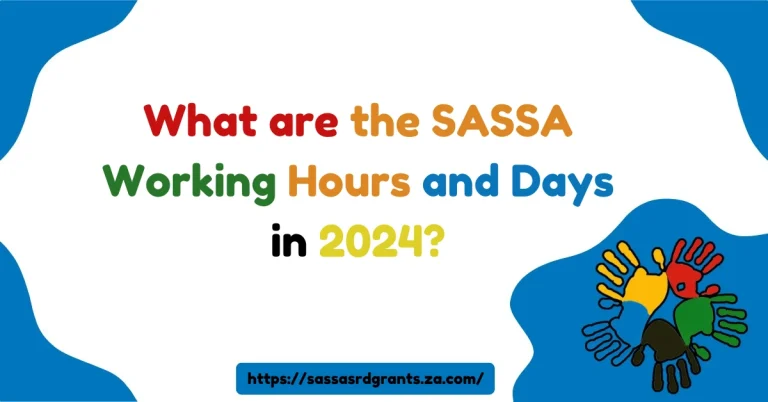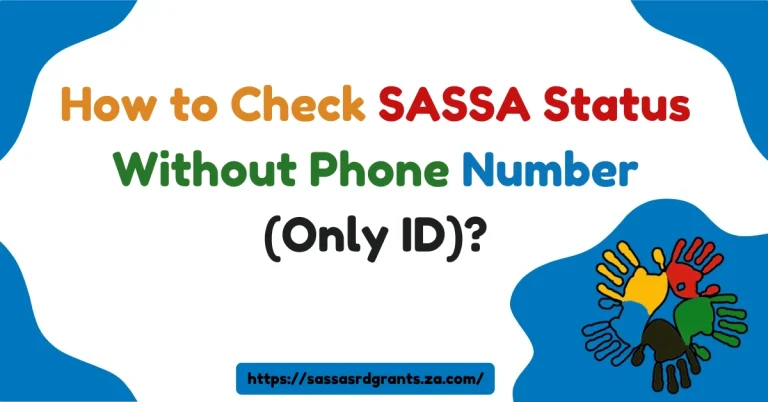Can You Get SASSA, UIF, and Work Pension at Once?
If you’re approaching retirement or have left your job, you may be exploring different financial options, like SASSA grants, UIF benefits, and a work pension.
But can you receive all three at once? In short, it’s possible, but the details are nuanced. Let’s break down how these benefits work, what the eligibility requirements are, and how you can maximize your financial support.
Can You Get SASSA, UIF, and Work Pension at Once? (Quick Answer)
Yes, receiving SASSA, UIF, and a work pension simultaneously is possible. However, SASSA grants involve a means test. If your income from UIF and pension benefits exceeds certain limits, it may reduce or disqualify you from receiving the full SASSA grant.
What Is the Difference Between SASSA, UIF, and Pensions?
Understanding the purpose and eligibility requirements of each benefit is crucial:
- SASSA (South African Social Security Agency) provides grants for those in need, such as the elderly or individuals with disabilities.
- UIF (Unemployment Insurance Fund) is a social insurance program designed for individuals who lose their jobs involuntarily.
- Work pensions are typically provided by an employer based on years of service, designed to support you financially after retirement.
Each program serves different needs and has unique eligibility criteria. While you may be eligible for multiple benefits, the means test for SASSA evaluates your total income, which could impact the amount you receive.
Who Qualifies for UIF?
UIF benefits are generally available to individuals who lose their jobs due to reasons beyond their control, such as retrenchment, dismissal, or the death of an employer. If you voluntarily resign or retire, UIF benefits typically do not apply.
The types of UIF benefits include:
- Unemployment benefits for those actively seeking work after involuntary job loss.
- Illness benefits for those temporarily unable to work due to illness.
- Maternity benefits for individuals on maternity leave.
- Adoption benefits for parents of newly adopted children.
- Dependants’ benefits for dependents of a deceased contributor.
For retirees, UIF benefits may only be available under specific conditions, such as forced retirement due to age or company retrenchment.
How Do SASSA Grants Work?
The SASSA offers grants to help support South African citizens in need. These grants, including old-age pensions and disability grants, are means-tested.
This means that SASSA evaluates your income, including UIF benefits and any work pension funds, to determine eligibility.
SASSA Income Limits
To qualify for a SASSA grant, your annual income must fall below the following thresholds:
- Single individuals: Maximum of R86,280 per year.
- Married couples: Combined maximum income of R172,560 per year.
Exceeding these limits can result in a reduction or disqualification of your SASSA grant. Knowing how much you receive from UIF and pensions is essential to ensure you remain eligible.
How Does Income Affect SASSA Benefits?
If you receive income from UIF or a work pension, this income will be taken into account in SASSA’s means test.
For example, a work pension you receive from a former employer counts toward your total income for SASSA eligibility.
If this income, combined with any other sources, surpasses the SASSA limits, your SASSA grant amount could decrease or be eliminated.
What Counts as Income for SASSA?
According to The Black Sash, an advocacy group for social justice, the following sources are counted as income for SASSA eligibility:
- UIF benefits from the Unemployment Insurance Fund.
- Pension and provident funds from your former employer.
- Other social insurance payments, like COIDA (Compensation for Occupational Injuries and Diseases Act).
If your total income from these sources exceeds SASSA’s limits, you may not qualify for the grant.
Can You Receive Both UIF and SASSA?
Yes, you may receive both UIF and SASSA benefits. However, the income you receive from UIF could reduce or disqualify your SASSA benefits due to the means test.
While UIF and SASSA are independent systems, both assess your income to determine eligibility.
What Happens If You Receive a Work Pension?
Receiving a work pension can also impact your eligibility for SASSA benefits. Like UIF, a work pension is counted as income by SASSA, so if your pension income, combined with other earnings, exceeds the annual limit of R86,280 for individuals, your SASSA grant may be affected or entirely disqualified.
Can You Claim UIF After Retiring?
In general, voluntary retirement does not qualify you for UIF benefits. However, if you were forced to retire due to company retrenchment or because of your age, you may still qualify for UIF benefits.
To apply under these circumstances, your employer should report the reason for your retirement to the Department of Labour.
UIF Codes and Retirement
When employees leave a company, employers submit a UI19 form to the Department of Labour, indicating the reason for the departure with specific codes:
- 01: Active employment
- 03: Retired
- 05: Contract expired
- 11: Retrenched
If your UI19 form shows a code for voluntary retirement, you typically cannot receive UIF benefits. However, if it shows retrenchment or forced retirement, you may still be eligible.
How to Check If You Qualify for SASSA, UIF, and Pension
If you want to confirm your eligibility for SASSA, UIF, and a pension, follow these steps:
- Calculate your total income, including UIF, pension, and other earnings.
- Review SASSA’s means test limits to ensure your income does not exceed the thresholds.
- Verify your eligibility for UIF based on your reason for leaving your job.
Staying within SASSA’s income limits will allow you to receive both a pension and a SASSA grant, but receiving UIF may impact your SASSA eligibility.
Conclusion
While it’s possible to receive SASSA, UIF, and a work pension at the same time, navigating the process requires careful attention to eligibility requirements and income thresholds.
Understanding the means test and how different sources of income impact each other is crucial for maximizing your benefits.
When in doubt, seek advice from professionals who can guide you through the specifics. For additional help, you can reach out to The Black Sash at help@blacksash.org.za or call their helpline at 072 66 33 73.






